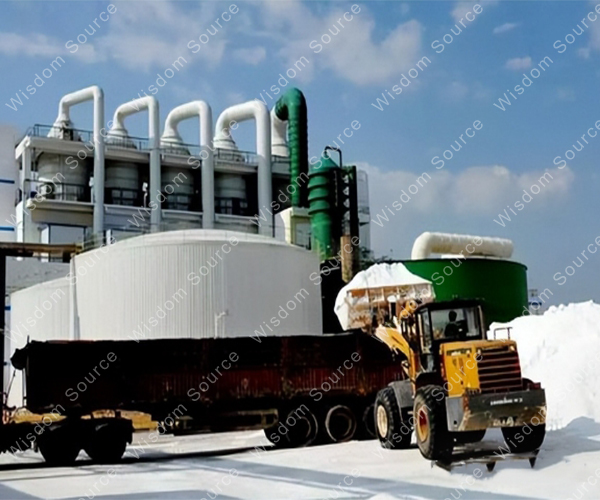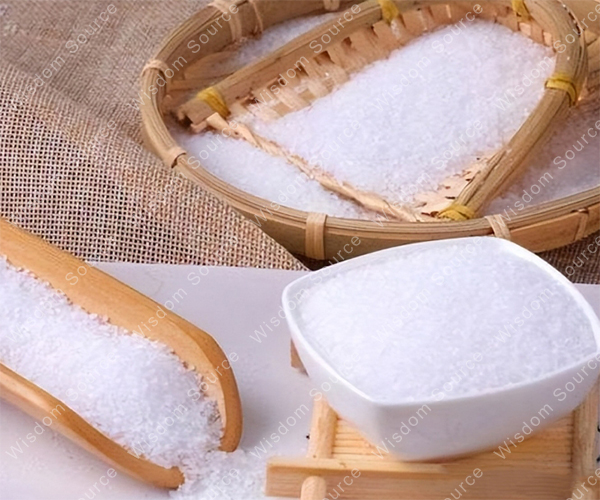Exploration Of The Application For Titanium And Titanium Alloy Materials In The Vacuum Salt Industry
Exploration Of The Application For Titanium And Titanium Alloy Materials In The Vacuum Salt Industry
China's salt industry is dominated by sea salt, followed by well mineral salt and lake salt.Since the 1950s of the last century, vacuum salt factories have gradually emerged. However, since the 1970s, the corrosion and drip problems faced by salt-making equipment have become increasingly serious, especially the corrosion of chloride ions. Limited by the development of metal materials in our country at that time, most of the main equipment in the salt industry was made of carbon steel, but the service life was relatively short. For example, No. 20 carbon steel pipes generally have a service life of no more than one year in heat exchangers, and perforation began to occur even in a few months. Later, we tried to use copper. Although the use time was extended, it still needed to be replaced after about two to three years. The equipment was severely damaged, the replacement cost was high, and it affected production.
In order to solve this problem, since 1975, Hu'nan Xiangli Salt Mine, Hubei Yingcheng Salt Plant, Sichuan Zigongjing Salt Plant, etc. have begun to use a large number of titanium production equipment.In the 150,000-ton refined salt project introduced by Yingkou Salt Chemical Plant, titanium material is also used for its salt evaporation equipment. By the 1990s, titanium was also widely used in heat exchangers in China's salt industry.

In the process of salt production, the corrosion problem of salt slurry pipelines is particularly prominent. When using carbon steel pipes, the lower part of the pipe will be corroded into a honeycomb hole in only half a month, and leaks have to be filled frequently, and the salt slurry pipe needs to be replaced as many as 6 times a year. Even if stainless steel is used, corrosion and perforation will occur after 4 months. At the same time, due to corrosion and the penetration of other metal compounds into the brine, it has a great impact on the quality of the salts. In addition, the roughness of the tank walls such as carbon steel also makes the dirt problem more serious. Over time, the dirt will get thicker and thicker, eventually forming a large area of salt scale, reducing the amount of circulation, affecting the heat transfer of the halogen liquid, and even blocking the inlet of the heating chamber, causing production to stop, and the motor will be burned down in severe cases.
In order to provide a more practical and reliable scientific basis for the selection of titanium materials in vacuum salt production, units such as Xiangli Salt Mine in Hunan Province and Zigongjing Salt Plant in Sichuan Province conducted hanging sheet tests of titanium materials at the salt production site. The test data show that the corrosion resistance of titanium material under the actual conditions of chloride and vacuum salt production site is very significant. After using titanium, due to its corrosion resistance and no impurities, the technical problems of difficult to improve the quality of salt and serious loss of production equipment have been completely solved. It can be said that the application of titanium has brought a new revolution to the material selection of vacuum salt making.

In the vacuum salt making process, the heating chamber is the most critical equipment. With the birth and development of titanium materials and titanium alloys, it has been promoted to the salt industry by the country because of its excellent anti-chloride ion properties. Domestic salt production basically adopts the four-effect vacuum salt production process, and titanium is mainly used in heat exchangers and heat transfer pipes. The heat transfer pipe is generally 9 meters long and the wall thickness is between 0.8 and 1.5 mm. Titanium has few impurities on the surface and strong corrosion resistance, so it is not easy to corrode perforation and pipe clogging. Under the same heat transfer performance, the titanium heating chamber has the advantages of light weight and small size compared to the steel pipe heating chamber.
At the same time, in the salt making process, the brine preheater is also an important process equipment.In an environment below 100℃, titanium has strong corrosion resistance in NaCl (sodium chloride) solution. Therefore, titanium is used in the production of the tube bundle and head of the brine preheater, which can effectively avoid the corrosion of the parts of the preheater by NaCl solution, so as to ensure the normal use of the equipment.
